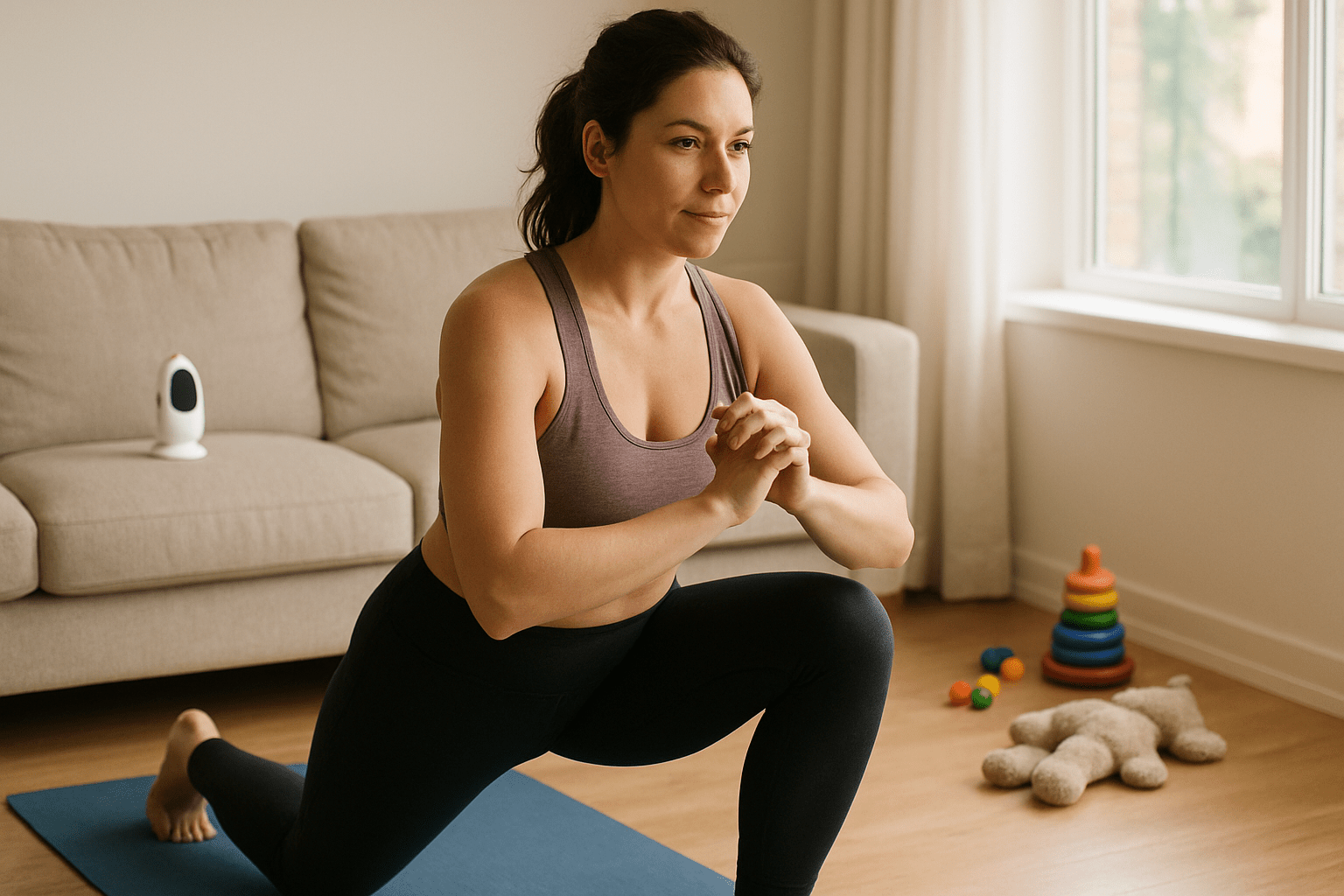
Being active after giving birth
Returning to Exercise After Birth: How to Safely Rebuild Strength

Congrats—six weeks! You’ve likely seen your OB or midwife and are eager to move again. Before jumping into running, bootcamp, or heavy lifting, a little planning now can save you from setbacks later.
Why See a Pelvic Floor Physical Therapist
Your OB/midwife checks healing and gives general clearance. A pelvic floor PT goes deeper: they assess pelvic floor muscles, C-section scar tissue (if applicable), and full-body movement patterns—because the pelvic floor doesn’t work in isolation.
Even with “clearance,” tissues aren’t fully healed at 6 weeks. A PT will give personalized guidelines so you can reintroduce movement safely and progressively.
Want more guidance for your postpartum journey?
The Right Postpartum Exercise Mindset
You will get back to the things you love. Start with intention and build a strong foundation first to reduce injury risk and support long-term strength.
Warning Signs to Watch For
- Leaking urine
- Pelvic pressure or heaviness
- Pelvic pain
- Hip, low back, or knee pain
- Increased bleeding
If any show up, pause and reassess with your provider or PT.
Your First Workouts Back
- Begin with no/light weights.
- Stick to non-impact for the first ~3 months.
- Swap high-impact for gentler alternatives:
- Step-ups instead of box jumps
- Biking instead of running or jump rope
- If something doesn’t feel right, stop and check in.
Psst—grab our printable substitution guide to take to the gym.
What About Abdominal Work?
Yes, you can work your abs—mindfully. Start with postpartum-safe core exercises (see our demo videos). If you have or suspect diastasis recti, a pelvic floor PT can tailor a plan for you.
Beyond the Gym: Everyday Postpartum Activity
Daily life counts, too—carrying your older child or hauling a car seat requires strength and good mechanics. Inside this module, you’ll find guidance on safe carrying and lifting, plus strength work to support those tasks.
About Resuming Sexual Activity
Many providers clear intercourse around 6 weeks—but your readiness matters most. If you experience pain, we’ll cover strategies and supports in a later module.
Want more guidance for your postpartum journey?
We cover safe postpartum movement, baby care, feeding, sleep, and so much more in our Baby’s First Year course. You’ll get expert-backed tips, step-by-step demos, and real-world strategies to help you feel confident during this first year of parenthood.
Explore Baby’s First Year →
